The construction industry is no stranger to technological innovation, and the integration of artificial intelligence (AI) is no exception. AI tools are transforming the way construction projects are planned, designed, and executed. By leveraging data and automation, AI is helping construction companies optimize project timelines, reduce costs, and minimize risks.
From design and planning to building and maintenance, AI tools are revolutionizing every stage of the construction process. Virtual reality simulations enable architects and engineers to visualize their designs in 3D, machine learning algorithms help identify safety risks before they become hazards, and AI-powered building automation systems reduce energy consumption and improve resource efficiency. In this blog, we'll explore the best AI tools for construction and how they're transforming the industry.
Autodesk BIM 360

Autodesk BIM 360 is a powerful cloud-based software for construction professionals that facilitates communication, collaboration, and coordination among the project team members. With BIM 360, project managers can manage project information in real-time, monitor project progress, track issues, and share data with stakeholders. The software comes with a range of features such as document management, design collaboration, field management, quality management, and project management. BIM 360's open API architecture allows integration with other applications, which can enhance the software's capabilities even further. By using BIM 360, construction professionals can improve project outcomes, reduce risk, and increase efficiency throughout the project lifecycle.
Pros
Cons
Overall Rank
Smartvid.io
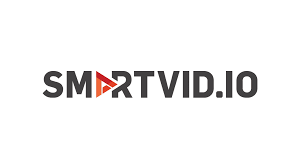
Smartvid.io is a powerful construction data analytics platform that leverages AI and machine learning to provide real-time insights into safety, quality, and productivity. With its intuitive interface and advanced analytics capabilities, Smartvid.io enables construction teams to identify and mitigate risks, reduce rework, and increase overall project efficiency. The platform uses a combination of machine learning algorithms and computer vision to analyze visual data from job sites and provide insights into potential safety hazards, such as workers not wearing personal protective equipment, as well as quality issues, such as defects in construction materials. In addition, Smartvid.io also enables project managers to track progress, monitor worker productivity, and make data-driven decisions to improve project outcomes.
Pros
Cons
Overall Rank
PlanGrid
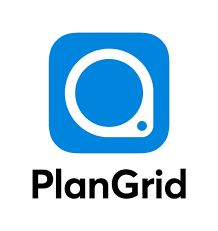
PlanGrid is a construction software that allows project managers, engineers, and contractors to collaborate in real-time and manage their construction plans, documents, and tasks from anywhere. With features such as automatic version control, markups, and field reports, PlanGrid makes it easier for teams to stay on top of their projects and reduce errors and delays. Additionally, PlanGrid's mobile app enables users to access their plans and drawings from their phones or tablets, even when they're offline. This makes it an excellent tool for teams working in remote or challenging environments, where internet connectivity may be limited. Overall, PlanGrid is a powerful and intuitive solution that helps construction teams streamline their workflows and improve project outcomes.
Pros
Cons
Overall Rank
Buildots
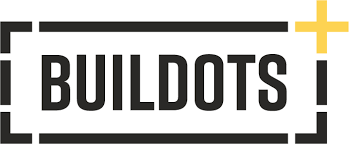
Buildots is a construction technology company that utilizes computer vision and AI to automate and digitize the construction process. Their technology allows for real-time tracking of construction projects and identifies any deviations from the original plan, reducing errors and delays. By using 360-degree cameras and sensors, Buildots creates a digital twin of the construction site, allowing for better communication and collaboration among stakeholders. The company's focus on improving construction efficiency and reducing costs has garnered attention from investors, with Buildots raising $30 million in a recent funding round. With its innovative technology, Buildots has the potential to revolutionize the construction industry and make construction projects more efficient and cost-effective.
Pros
Cons
Overall Rank
OxBlue
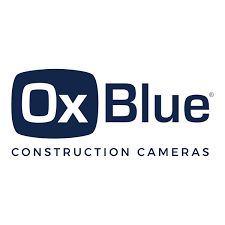
OxBlue is a leading provider of construction camera technology that helps businesses remotely monitor and document their construction projects. With high-definition cameras installed on site, OxBlue offers real-time access to construction sites, time-lapse videos, and high-resolution images that allow construction companies to monitor progress, identify potential issues, and share project updates with stakeholders. OxBlue's technology is user-friendly and customizable, allowing businesses to easily tailor their camera systems to meet their specific needs. Additionally, OxBlue's customer service is top-notch, providing reliable and responsive support to their clients.
Pros
Cons
Overall Rank
Reconstruct

Reconstruct refers to the process of rebuilding something that has been damaged or destroyed. This term can be used in various contexts, including construction, surgery, and even in psychology. In construction, it refers to the restoration of a building or structure that has suffered damage due to natural disasters, fire, or other causes. In surgery, reconstructive surgery is used to repair or rebuild damaged body parts, such as after a traumatic injury or cancer surgery. In psychology, reconstructive memory refers to the process of remembering and piecing together events from the past that may be distorted or incomplete in our memory. Overall, the process of reconstructing can be seen as a form of renewal, healing, and transformation.
Pros
Cons
Overall Rank
Rhumbix
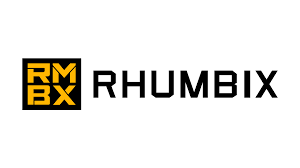
Rhumbix is a construction technology platform that streamlines workforce management and increases productivity. With Rhumbix, construction teams can easily track time, materials, and equipment usage in real-time, eliminating the need for manual data entry and reducing the potential for errors. The platform also provides tools for project management, safety compliance, and worker communication, all of which contribute to improved efficiency and collaboration on the job site. Overall, Rhumbix is a valuable tool for construction companies looking to optimize their operations and achieve greater success in their projects.
Pros
Cons
Overall Rank
StructionSite
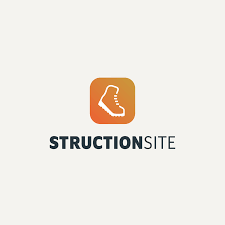
StructionSite is a construction technology company that provides a platform for real-time project documentation and collaboration. Their platform combines 360-degree cameras, drones, and mobile devices to capture and share site progress, reducing the need for physical inspections and enhancing communication between project stakeholders. With StructionSite, construction professionals can remotely inspect their sites, identify issues, and make informed decisions in real-time, leading to increased efficiency and reduced costs. Their platform also integrates with other construction management software such as Procore and Autodesk BIM 360, making it a versatile solution for construction project management.
Pros
Cons
Overall Rank
OpenSpace
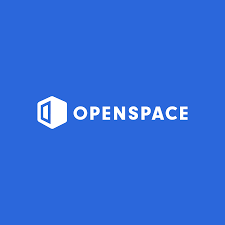
OpenSpace is an open-source software that enables collaborative, immersive visualization of 3D models and datasets. It provides an intuitive interface for multiple users to interact and manipulate large-scale visualizations in real-time, making it an invaluable tool for scientific research, architectural design, and engineering simulations. OpenSpace's unique feature is its ability to synchronize remote users' views, allowing for collaborative exploration and discussion of complex visualizations. With its modular architecture, OpenSpace is highly customizable and extendable, making it accessible to a wide range of users and developers.
Pros
Cons
Overall Rank
Bridgit Bench

Bridgit Bench is a construction resource management software that helps contractors manage their workforce efficiently. The software provides real-time insights on project progress, workforce allocation, and communication between team members. Bridgit Bench makes it easy for contractors to monitor their project budgets, track employee performance, and make data-driven decisions. The software is easy to use, with a user-friendly interface that can be accessed on any device. It streamlines construction management, allowing contractors to spend more time on their projects and less time on administrative tasks.
Pros
Cons
Overall Rank
NoteVault
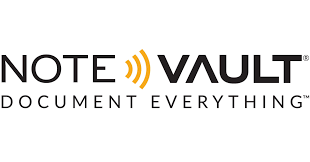
NoteVault is a mobile application designed to streamline the process of daily construction reporting. The app utilizes voice-to-text technology, allowing users to dictate their daily reports into their smartphones. The app's artificial intelligence technology then converts the speech into text and categorizes the report into relevant fields such as weather, labor, and equipment usage. NoteVault's unique system allows construction teams to quickly and easily generate detailed reports, saving time and increasing accuracy. The app also provides photo and video documentation capabilities, enabling users to attach visual aids to their reports. Overall, NoteVault is an innovative tool for the construction industry, simplifying and improving the daily reporting process.
Pros
Cons
Overall Rank
HoloBuilder

HoloBuilder is an innovative platform that enables construction teams to create and share 360-degree virtual tours of job sites. The platform allows users to easily capture images of a job site using a 360-degree camera, and then stitch them together into a virtual tour that can be shared with others. HoloBuilder's technology is particularly useful for teams working remotely, allowing them to collaborate and make decisions as if they were physically present on the job site. With HoloBuilder, construction teams can save time and money by reducing the need for on-site visits, while also improving communication and collaboration.
Pros
Cons
Overall Rank
Raken

Raken is a cloud-based construction management software that helps project managers and field teams streamline communication, improve productivity, and ensure compliance with safety regulations. With Raken, users can create and share daily reports, time cards, and photo documentation, and access them from anywhere on any device. The platform also offers custom forms and workflows, real-time collaboration tools, and integration with other construction software systems. Raken's user-friendly interface and intuitive features make it a popular choice among construction professionals looking to simplify their project management processes and reduce administrative tasks.
Pros
Cons
Overall Rank
6D.ai
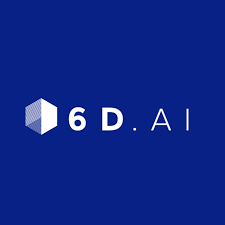
6D.ai is a startup that develops augmented reality (AR) tools and technology to create accurate 3D maps of physical spaces. Their platform allows users to capture and upload real-world environments and then add digital content to those spaces. With their AR Cloud technology, 6D.ai aims to revolutionize the way people interact with the world around them, by enabling a more seamless integration of virtual and real-world experiences. The platform has various use cases, including interior design, architecture, gaming, and retail. Moreover, 6D.ai provides developers with an AR SDK that they can use to build their own AR applications, making it easier for businesses to incorporate AR into their workflows.
Pros
Cons
Overall Rank
Pype
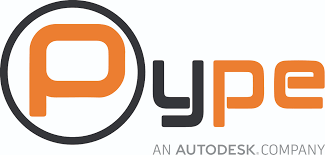
Pype is a cloud-based software platform that automates the construction industry's manual processes, including project management, document organization, and data entry. Pype streamlines project workflows by providing tools to extract data from various construction documents and automatically categorize and organize them. The software analyzes construction documents, such as submittals and RFIs, and extracts critical data points, reducing the need for manual entry and allowing project teams to focus on more valuable tasks. Pype also provides real-time insights into project data, enabling teams to make informed decisions quickly. The platform integrates with popular construction software such as Procore, Autodesk, and Bluebeam, enabling seamless data transfer. With Pype, project teams can complete projects faster, more accurately, and with fewer errors.
Pros
Cons
Overall Rank
Procore

Procore is a cloud-based construction management software that provides solutions for project management, financial management, resource management, and collaboration. It allows project managers to have full control of their construction projects and streamline communication between teams, subcontractors, and stakeholders. With Procore, teams can easily track project progress, manage budgets, and generate reports in real-time. Its intuitive user interface and mobile app make it easy for users to access project data from anywhere at any time. Procore also offers integrations with other software tools, such as AutoCAD and QuickBooks, to further enhance its capabilities. Overall, Procore is a powerful tool for construction professionals looking to improve project efficiency and collaboration.
Pros
Cons
Overall Rank
eSUB
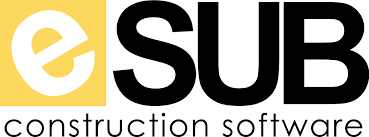
eSUB is a cloud-based project management software that is designed specifically for construction projects. It offers a suite of features that enables construction project managers to manage projects more efficiently by streamlining workflows, tracking progress, and increasing collaboration among team members. With eSUB, users can manage project documents, create RFIs and change orders, track labor and material costs, and schedule work. The platform also allows project managers to create and manage submittals, track time and attendance, and generate reports that provide insights into project performance. eSUB's user-friendly interface, mobile app, and integration with other construction software tools make it a popular choice among construction project managers who seek a comprehensive solution to manage their projects.
Pros
Cons
Overall Rank
Fieldwire
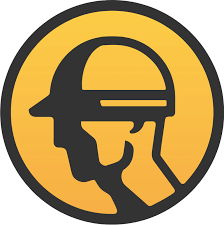
Fieldwire is a powerful construction project management software that allows construction teams to collaborate, plan, and track their projects from start to finish. With its intuitive interface and real-time updates, Fieldwire streamlines communication between team members, subcontractors, and stakeholders, ensuring that everyone is on the same page. The software offers a range of features including task tracking, document management, and progress reporting, enabling teams to stay organized and efficient. Fieldwire's mobile app also allows workers to access project information from anywhere, making it a valuable tool for remote teams or those working on multiple job sites.
Pros
Cons
Overall Rank
In conclusion, the integration of AI tools into the construction industry has revolutionized the way construction projects are planned, designed, and executed. These tools have made it possible for construction companies to reduce costs, minimize risks, and optimize project timelines. The benefits of AI tools are numerous and far-reaching, and they have the potential to change the face of the construction industry as we know it. From virtual reality simulations that enable architects and engineers to visualize their designs in 3D, to machine learning algorithms that help identify safety risks before they become hazards, the AI tools available to the construction industry are becoming increasingly sophisticated and effective. In addition, these tools are also enabling the construction industry to make significant progress in sustainability, with the use of AI-powered building automation systems that reduce energy consumption and improve resource efficiency. However, it is important to note that AI tools are not a silver bullet solution for all construction challenges. There are still many limitations and challenges to overcome, including issues with data accuracy, privacy, and the potential for job displacement. Nevertheless, as the technology continues to develop, we can expect to see AI tools become even more ubiquitous and transformative in the construction industry, leading to safer, more efficient, and more sustainable construction projects.
